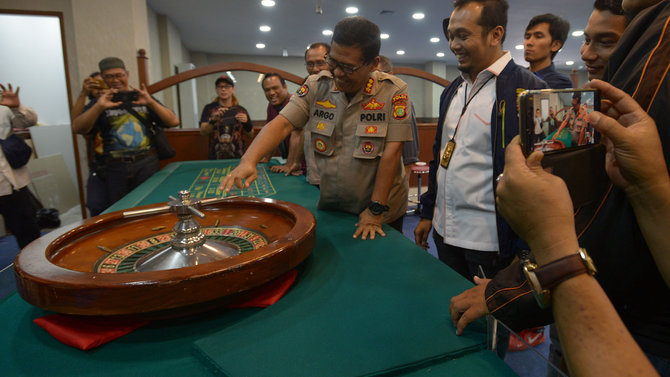The History of Legal Casinos in Jakarta: A Glimpse into the Past
Jakarta, Indonesia’s bustling capital, is known for its vibrant culture and rich history. While gambling is largely prohibited under Indonesian law today, there was a time when legal casinos operated in Jakarta. This brief period offers an intriguing glimpse into the city’s past and the cultural shifts that led to the eventual ban on gambling.
The Emergence of Legal Casinos in Jakarta
In the early 1960s, during President Sukarno’s administration, legal gambling establishments, including casinos, began to appear in Jakarta. At the time, the government permitted certain forms of gambling to generate revenue and boost the country’s struggling economy. These venues attracted locals and foreigners alike, creating a lively entertainment scene in the capital.
Casinos in Jakarta were often located in luxury hotels or high-end venues, catering to the elite. Popular games included traditional card games, roulette, and dice games, mirroring the offerings of casinos in other parts of the world. These establishments symbolized modernity and opulence, making them a draw for those seeking entertainment.
Casinos in Jakarta – The Decline of Legal Gambling
Despite their popularity, legal casinos in Jakarta faced growing criticism. Religious and cultural groups argued that gambling conflicted with Indonesia’s moral and social values. Islam, the predominant religion in the country, strictly prohibits gambling, further fueling opposition.
By the mid-1960s, the political climate in Indonesia had shifted significantly. President Sukarno’s government was replaced by Suharto’s New Order regime, which prioritized social stability and conservative values. In 1973, under mounting pressure from religious leaders and civil society, the government officially banned all forms of gambling, including casinos, across the country.
The Impact of the Ban
The ban on legal gambling marked the end of casinos in Jakarta. While the decision was celebrated by many, it also led to the rise of underground gambling operations. These illegal establishments operated in secrecy, often involving organized crime and corruption. Despite law enforcement efforts, underground gambling continues to exist in some parts of the country.
Cultural and Economic Reflections
The brief era of legal casinos in Jakarta highlights the tension between modernity and tradition in Indonesia. While gambling was initially seen as a way to boost the economy and attract tourists, its incompatibility with the nation’s cultural and religious values ultimately led to its prohibition.
The ban also reflected the broader societal push toward moral conservatism during the New Order era. Today, gambling remains a contentious issue in Indonesia, with strict laws and harsh penalties for those caught participating in illegal activities.
Lessons from the Past
The history of legal casinos in Jakarta serves as a reminder of the complex interplay between cultural values, economic needs, and political priorities. While the era of legal gambling was short-lived, it left an indelible mark on the city’s history, offering a unique perspective on how Jakarta has evolved over the decades.
As Indonesia continues to develop, the lessons from this period remain relevant, underscoring the importance of aligning economic initiatives with the nation’s cultural and social fabric. (Klik link untuk info scatter hitam)

